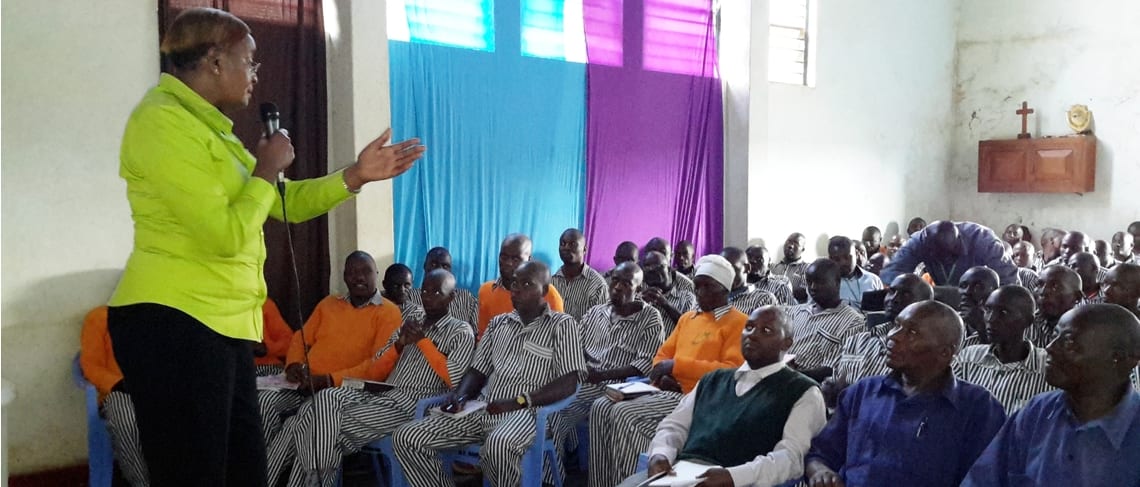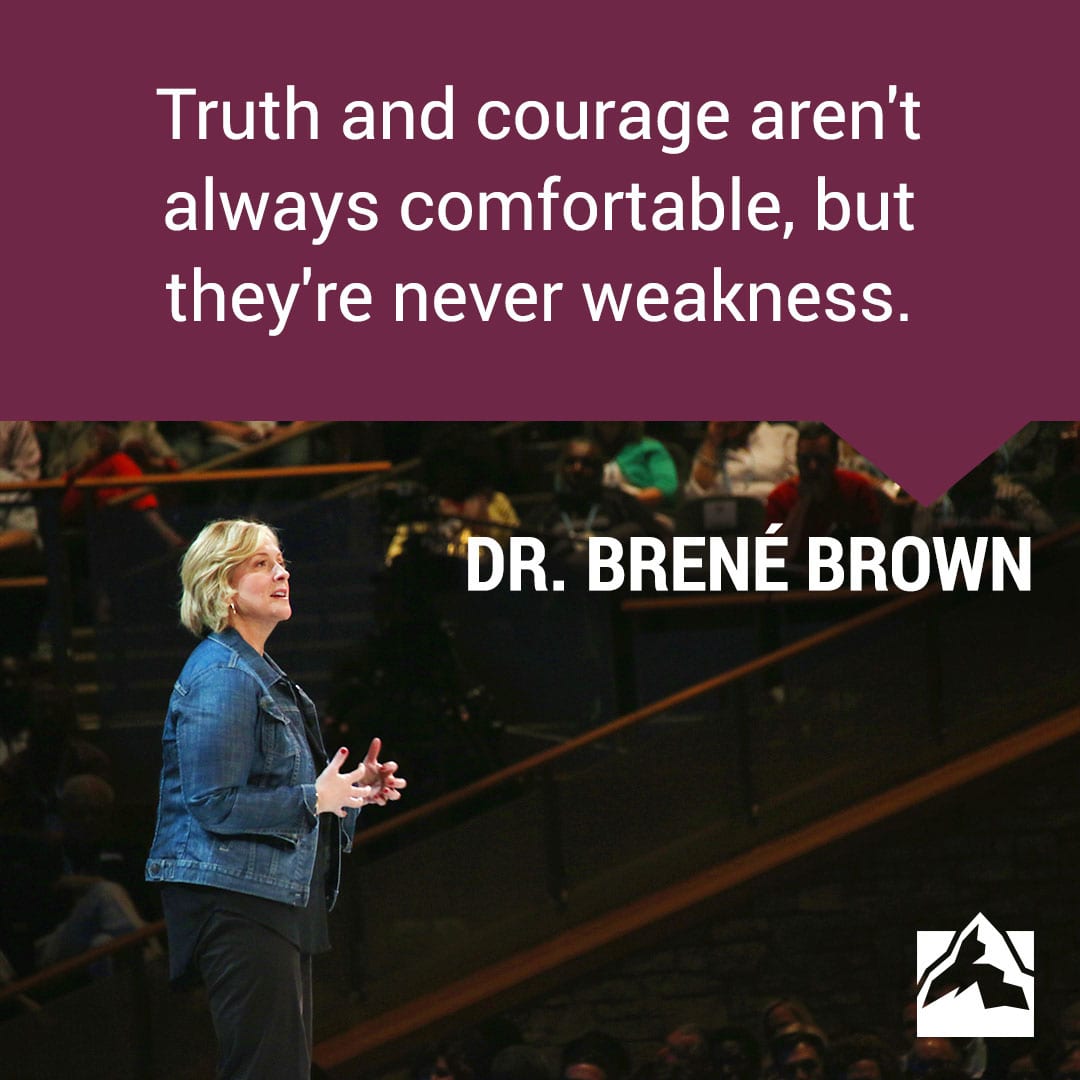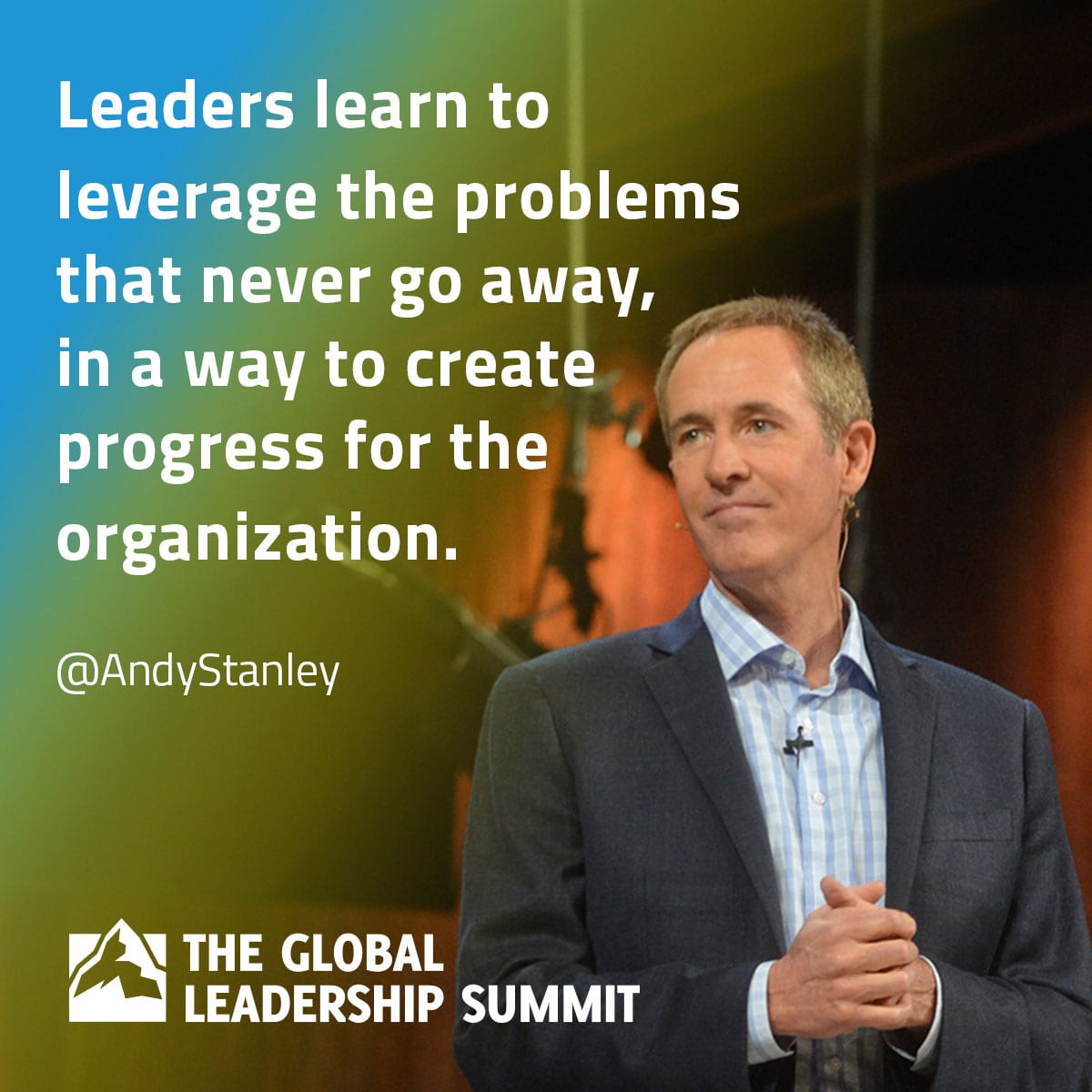
Learning to receive feedback from each other is what leadership is all about.

Learning to receive feedback from each other is what leadership is all about.

Anything that is written in God’s Word is possible for anyone who believes.

Last week, the GLS was held for 97 prisoners in at Kamiti Maximum Security Prison in Kenya.
“It was a great day! We had 97 inmates, all serving life imprisonment (unless released through presidential pardon or lack of a case in court.) Madam Wanini Kereri, Regional Prison Commander in Nairobi, Kenya, is opening the doors for all the prisons in Kenya. We’re looking forward to what will happen next year.” – Miriam Chumbi, GLS Leader, Kenya
Click here to learn more about Wanini Kereri’s work in the prison system in Kenya.

When Val Abreu, from Sao Paulo, Brazil, first heard about the Summit, she didn’t think she was a leader or that the Summit was meant for someone like her. It wasn’t until she came across Marcus Buckingham’s session on a Summit DVD that she began to discover her leadership strengths, and realized she had something to offer. Drawn in, she got more involved with the Summit and now serves as the producer for all the Summit site locations across Brazil, a country she loves dearly.
Building on the strengths of Brazilian leaders to transform the country
“Brazil is known for its creativity and its beauty,” Val shares. “And what I love about Brazilians is that they always find a way. They find a way to make things happen. Brazil has a love and a passion, and when we build into that energy, it really could make a difference.”
Val believes that if the leaders of Brazil could discover their value in Christ, develop their own strengths and apply this to their lives, transformation will be inevitable. “My prayer is that Brazilians will see they have a voice,” she shares. “I pray they will see that they have influence. We can’t be victims. We can’t sit back and let things happen. As Christians we need to use what God has given us.
“When we see our value in who God is, then we are able not only to love Him, but love others as well,” Val continues. “I’d love to see Sao Paulo understand this, and not be so consumed with ourselves that we don’t recognize the needs of others. If we in Sao Paulo grasp this, you’ll see a city that’s different. You’ll see a Sao Paulo that’s clean, thriving, loving one another, impacting each other and helping each other grow.”
Transformation requires courageous leadership
Val realizes transformation like this requires courageous leadership—leadership that is encouraged through the GLS. This is a big reason why she so values the GLS and sharing it with leaders across Brazil. One example she shared was of a pastor who’s been blessed by the GLS. He is pastor in the middle of a very remote area of Brazil. He was so impacted that he reached out to the educational sector of his community. And because of the encouragement he received, he now has a voice with the mayors and all the teachers who are now receiving leadership training through the GLS.
“When one of the speakers shared the story about Jeremiah and he broke the vase on stage at the GLS and said, ‘I’m going to do what He calls me to do even though it’s hard,’ it stuck out to me. We need to be bold and serve where God has called us, even when it’s hard and takes courage. He is the one in control. He put me here. He’s going to give me what’s necessary to make it happen.”
There are thousands of leaders in Brazil like Val and like the pastor in the rural community serving the educational sector. With encouragement, they transform their communities and their cities.
Thank you for supporting courageous leaders like Val
“Thank you so much for giving and making the GLS happen in Brazil,” said Val. “Because of your support, church leaders are starting to recognize that they can make a difference and Brazil is becoming a better place.”
Whatever you have commanded us we will do, and wherever you send us we will go. (Joshua 1:16)

The “War for Talent” is real. Kevin Hankin coined this phrase almost 20 years ago; however, the battle for top talent is actually much older. For decades, the best leaders have understood that the organizations with the most talented people have the greatest chance of winning. Of course, winning is defined differently if you are a business, an educational institution or a church. But the truth remains – people ultimately determine an organization’s level of success.
We’ve surveyed leaders for decades and – you guessed it, finding and keeping people is always on the list of issues/concerns. Leaders can never settle or become complacent in this arena, or they run the risk of losing any hard-fought competitive advantage they may have attained.
As the work becomes more demanding, demographics shift and employment levels fluctuate, the challenge of finding the people you need can be increasingly difficult. You may think your competition for talent is confined to your industry or geography, but the War for Talent has crossed industries, job categories and oceans. The battle is now global!
Even in the midst of this reality, some leaders appear to attract top talent consistently. How do they do it? Honestly, I’m not sure, but we’ve just launched a major initiative to find the answer.
Over the last 90 days, I have personally met with dozens of business leaders across the country who excel in this arena, and I’ve also conducted almost 20 focus groups with top performers. It’s premature to declare any insights, but today I’ll share some of the more pragmatic ideas that may be helpful as you wage your own battle for the brightest and best. Nothing radical here, but these early findings certainly underscore the importance of the fundamentals.
Priority of People – There are many things a leader can delegate. Even in the people arena, the best leaders appear to delegate extensively – to a point. However, the leader(s) sets the tone and the priorities for his or her organization. When you talk with the best leaders about their success, they may mention many things, but people will be central to the conversation. If people are not one of your top priorities, the War for Talent will likely become a protracted and costly campaign.
Clear Profile – Leaders who find and keep amazing people have identified specifically what they want and need in a hire. On the surface, this may sound strange, but I’m reminded of what H. L. Mencken said, “A problem well-defined is half-solved.” These leaders KNOW who they are looking for and most don’t settle just because it is hard. If you compromise on a selection, you lower the bar. If you lower the bar, you can lose the culture. Specifically, what are you looking for? This is where Pat Lencioni’s latest book, The Ideal Team Player may be helpful.
Strong Process – Over the years, I’ve probably seen hundreds, maybe thousands, of unique ways to search for, screen, select, and on-board talent. Not surprising, the organizations that excel in the people arena have a well-conceived process, executed with diligence. Yes, there are exceptions. I met one top performer recently who was selected outside the organization’s process. He was so sharp, the interviewer jettisoned the process and made the decision on the spot. Even in this example, the leader making the decision felt empowered; in part, because the profile was so clear, the decision to circumvent the process made sense.
Fast Start – The battle is not won when a person is selected. What do you do to ensure your newfound talent gets off to a fast start? On-boarding (orientation), is critical. This is the step to ensure your top talent “sticks.” Horst Schulze, a popular Summit speaker, has long advocated, “The first 40 hours of an employee’s tenure is the most important of his/her career.” How much thought and attention have you given to this critical part of the process?
I hope to have more to share on this topic in the future. But for now, let me encourage you to keep people near the top of your list of priorities – finding them, selecting them, orienting them and growing them. If you do, you can win the War for Talent!

Leading up to this excerpt, Carly Fiorina discusses the nature of leadership. Carly describes how leaders can unlock potential using the leadership framework.

Leading up to this excerpt, Carly Fiorina discusses the nature of leadership. Carly describes how leaders can unlock potential using the leadership framework.

Truth and courage aren’t always comfortable, but they’re never weakness.

Don’t be afraid to admit what you don’t know.

Leaders learn to leverage the problems that never go away, in a way to create progress for the organization.
“We welcome and encourage comments on this site. There may be some instances where comments will need to be edited or removed, such as:
If you have any questions on the commenting policy, please let us know at heretoserve@globalleadership.org”
Recent Comments